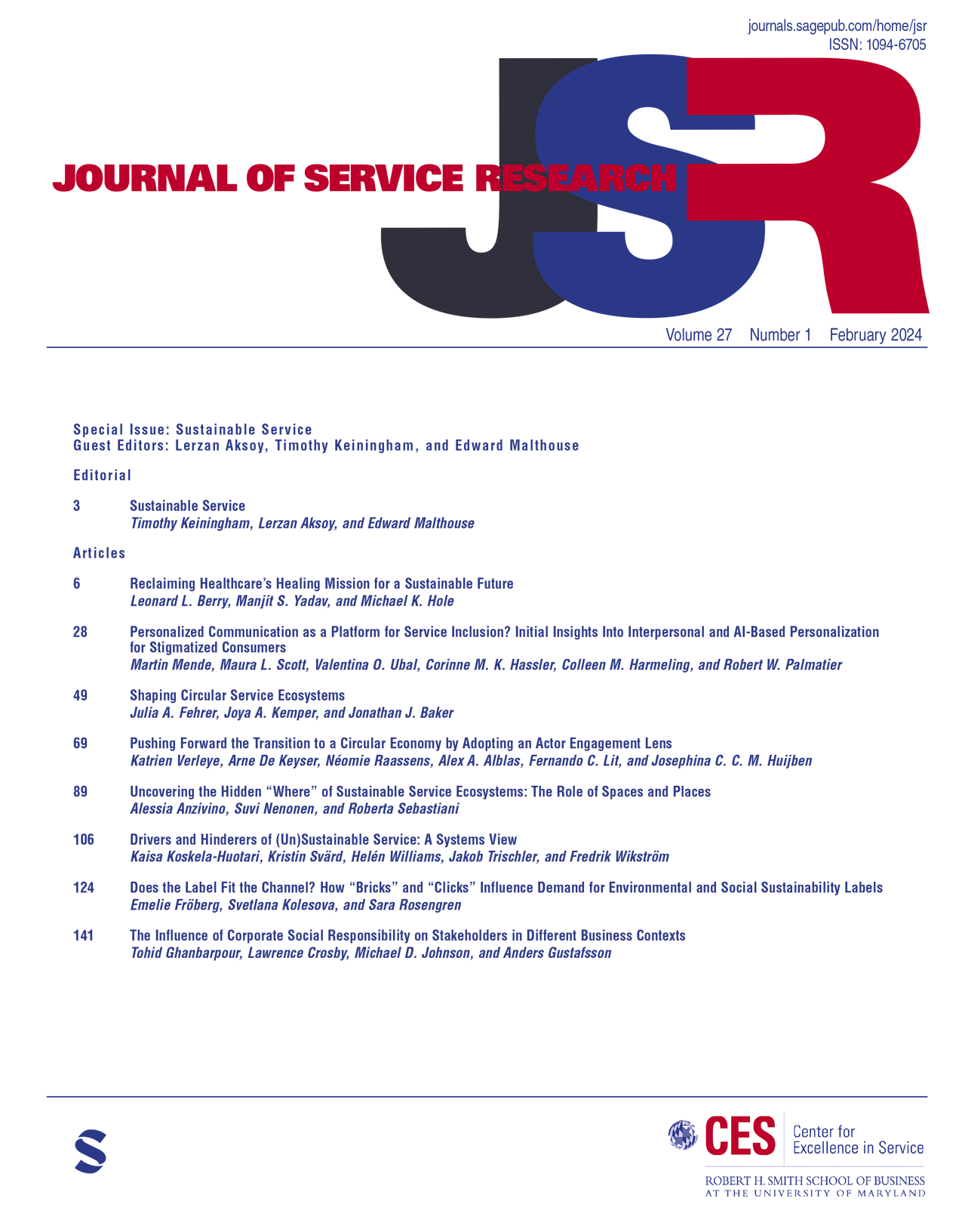长期护理中的服务机器人:以消费者为中心的观点
IF 8.6
2区 管理学
Q1 BUSINESS
引用次数: 12
摘要
具有先进智能能力的服务型机器人可能会改变服务型机器人。然而,很少有人关注消费者,特别是那些有残疾的消费者,如何设想机器人未来融入情感密集型服务领域的特征,比如长期护理(LTC)。我们采用跨学科的方法,对残疾消费者进行三项探索性研究,涉及社区哲学、乐高®严肃游戏®和设计思维方法。针对缺乏以消费者为中心的研究,我们提供了以下三方面的贡献:1)在LTC中开发消费者构想的机器人价值的概念化,这被设想为为消费者提供实现价值机会的支持资源;2)实证证明致病性脆弱性是潜在的价值破坏因素,强调将服务机器人研究与服务包容范式相结合的重要性;3)对机器人移情和情感相关的人工智能能力的先前描述进行理论扩展和澄清。残障消费者设想机器人能够通过模仿认知和行为移情来刺激和调节情绪,但无法表达情感和道德上的移情,而情感和道德是护理体验的核心。在为护理实践提供支持的同时,在可预见的未来,服务机器人本身不会实现“被照顾”的体验。本文章由计算机程序翻译,如有差异,请以英文原文为准。
Service Robots in Long-Term Care: A Consumer-Centric View
Service robots with advanced intelligence capabilities can potentially transform servicescapes. However, limited attention has been given to how consumers experiencing vulnerabilities, particularly those with disabilities, envisage the characteristics of robots’ prospective integration into emotionally intense servicescapes, such as long-term care (LTC). We take an interdisciplinary approach conducting three exploratory studies with consumers with disabilities involving Community Philosophy, LEGO ® Serious Play ® , and Design Thinking methods. Addressing a lack of consumer-centric research, we offer a three-fold contribution by 1) developing a conceptualization of consumer-conceived value of robots in LTC, which are envisaged as a supporting resource offering consumers opportunities to realize value; 2) empirically evidencing pathogenic vulnerabilities as a potential value-destruction factor to underscore the importance of integrating service robots research with a service inclusion paradigm; and 3) providing a theoretical extension and clarification of prior characterizations of robots’ empathetic and emotion-related AI capabilities. Consumers with disabilities conceive robots able to stimulate and regulate emotions by mimicking cognitive and behavioral empathy, but unable to express affective and moral empathy, which is central to care experience. While providing support for care practices, for the foreseeable future, service robots will not, in themselves, actualize the experience of “being cared for.”
求助全文
通过发布文献求助,成功后即可免费获取论文全文。
去求助
来源期刊

Journal of Service Research
BUSINESS-
CiteScore
20.30
自引率
6.50%
发文量
28
期刊介绍:
The Journal of Service Research (JSR) is recognized as the foremost service research journal globally. It is an indispensable resource for staying updated on the latest advancements in service research. With its accessible and applicable approach, JSR equips readers with the essential knowledge and strategies needed to navigate an increasingly service-oriented economy. Brimming with contributions from esteemed service professionals and scholars, JSR presents a wealth of articles that offer invaluable insights from academia and industry alike.
 求助内容:
求助内容: 应助结果提醒方式:
应助结果提醒方式:


